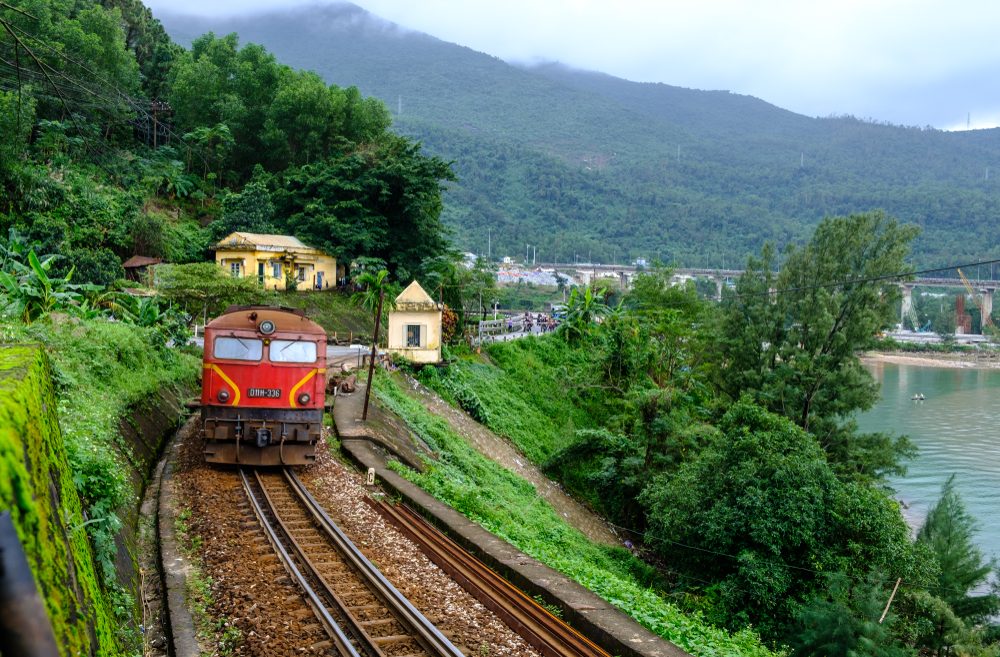When honeymooning in the Philippines, Noam Toister and his wife were faced with the challenge of reaching a world heritage site located north of the country. “We took a taxi to the main bus station, only to be told there was no space on public transport that day,” Toister tells ISRAEL21c.
“Aside from the logistical complications, it was frustrating we couldn’t book advance tickets.”
As 95 percent of transport inventory in developing countries is sold offline — mainly due to a lack of digital infrastructure and resources — navigating ground transportation abroad remains a pain point for many worldwide travelers.
“I asked myself, if travelers can pre-book plane tickets, accommodation and tours, then why not ground transportation?”
Enter Bookaway, the online booking system helping travelers get around on the ground in developing countries.
Offering a choice of bus, train or ferry, the website’s roster of reputable suppliers facilitates simple ticket bookings between towns and cities within 18 developing countries, on 2,000 transportation lines.
“The idea was put into motion upon my return to Israel when I contacted a few local agents in the Philippines about expanding their customer reach through a website for online ticket sales,” explains Toister.
Within the first week, a few hundred tickets had been sold. When the same success happened in the Vietnamese market, “I had a feeling we were on to a game-changer, something with the potential to provide online assistance to developing countries and enhance the travel experience of tourists.”
Toister’s background within the startup ecosystem includes a five-year stint as CEO of mobile ad-tech company VerData. Bookaway was founded with the combined skills of Toister and cofounder and CTO Jonathan Bensaid, an expert developer whom he met during his MBA studies at Ben-Gurion University of the Negev.
The company, which launched in early 2017, has so far raised $1 million in seed funding. Run by a team of a dozen workers in Tel Aviv, Bookaway brought on board two former e-commerce VPs from billion-dollar B2B company HotelBeds, and has a further seven operational employees in international territories.
“We have hundreds of thousands of users booking tickets through the website and we are aiming to reach the one million mark by next year,” says Toister.
Predominately operating in the Eastern Asian market, as well as a handful of Eastern European countries, the company has big plans for the LATAM market.
“Latin America has huge potential for us as it accounts for almost 25% of our target market, so it’s definitely a focus for future expansion,” says Toister. Ground transportation options are currently available in Mexico and Bolivia, and soon in Peru.
The product

The user-friendly website, available in English, French, Spanish, German and Russian, lets visitors choose “from” and “to” destinations for their preferred dates and numbers of passengers.
The system sources the quickest and simplest routes to get users from A to B without hassle, with tickets sent directly by email for pre-printing or, in many cases, scanning upon departure. And soon, travelers will be able to book via an app, set to launch in early 2019.
“Much of our success is owed to the simplicity and convenience in the booking system, which offers transparent pricing. Additional transportation lines are being added each month. Most importantly, no other provider is operating within our specific market,” says Toister.
In addition to booking ground transportation, Bookaway offers essential travel content including schedules, key information on on-board amenities, pictures of transportation vehicles and feedback from other travelers.
“Our online support system is available 24/7 to provide an instant response via chat, email and phone, for any booking inquiry or issue,” explains Toister. “It’s a valuable support tool as we communicate directly with suppliers to solve any problem and save disruption to travelers during their vacation.”
The market
Not surprisingly, the bulk of Bookaway’s users are millennials from the European and North American markets – a demographic responsible for the quickest growth in dollars spent on travel, according to American Express Business Insights.
What’s more, as the experience economy maintains its upward growth, as does the trend in authentic local travel, countries such as Vietnam and Indonesia continue to record annual hikes in tourism.
“Our potential market stands at an estimated $41 billion including baby boomers, a population also accounting for a high number of bookings,” says Toister.
“We are working hard to expand into further territories as we grow our roster of local suppliers. In line with this, we are continuously working to better our content and information for a more insightful user experience,” Toister says.
“It’s all about providing the means for people to reach more destinations with ease and ultimately becoming a ‘one-stop-shop’ for ground travelers worldwide.”
For more information, click here
















